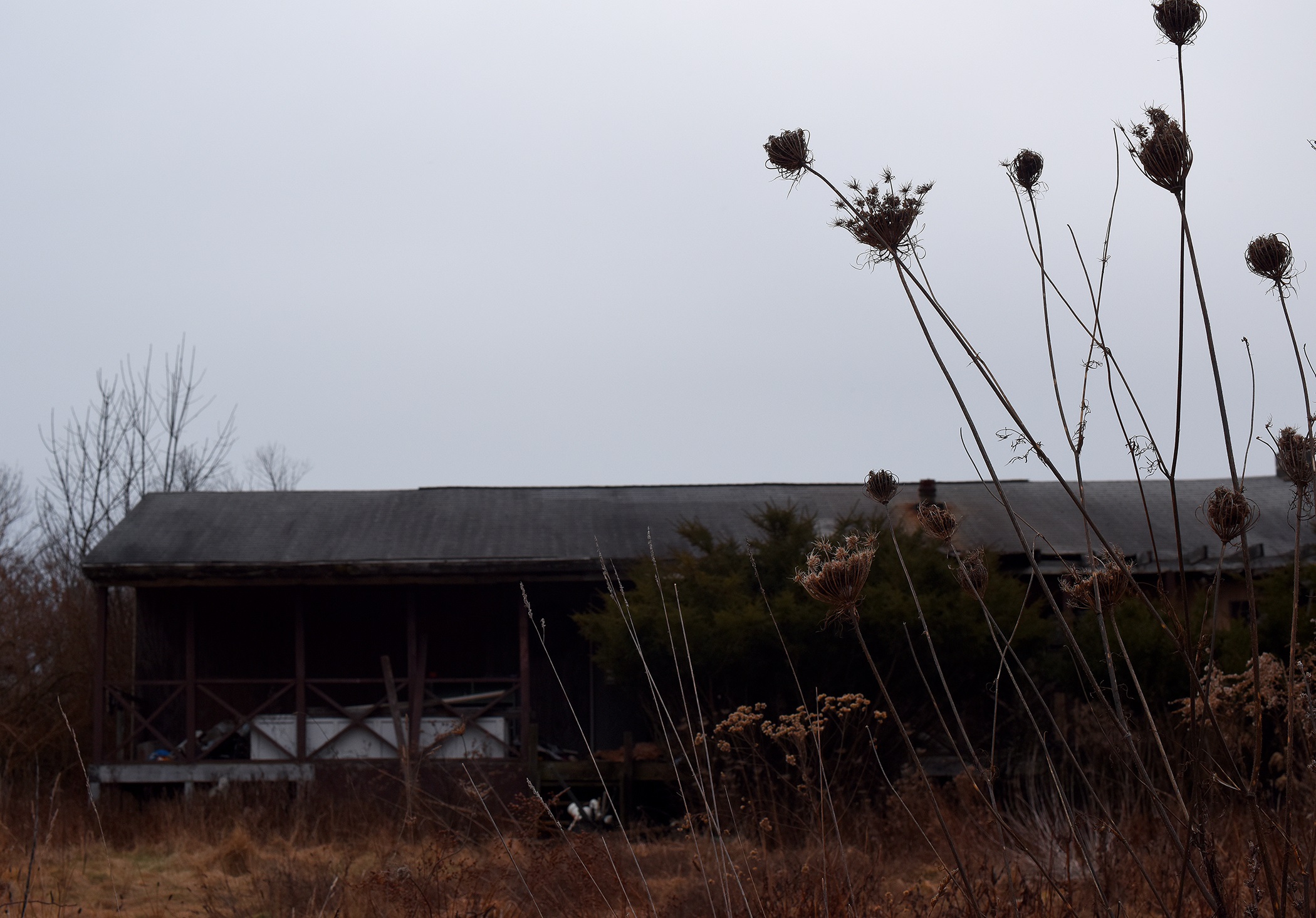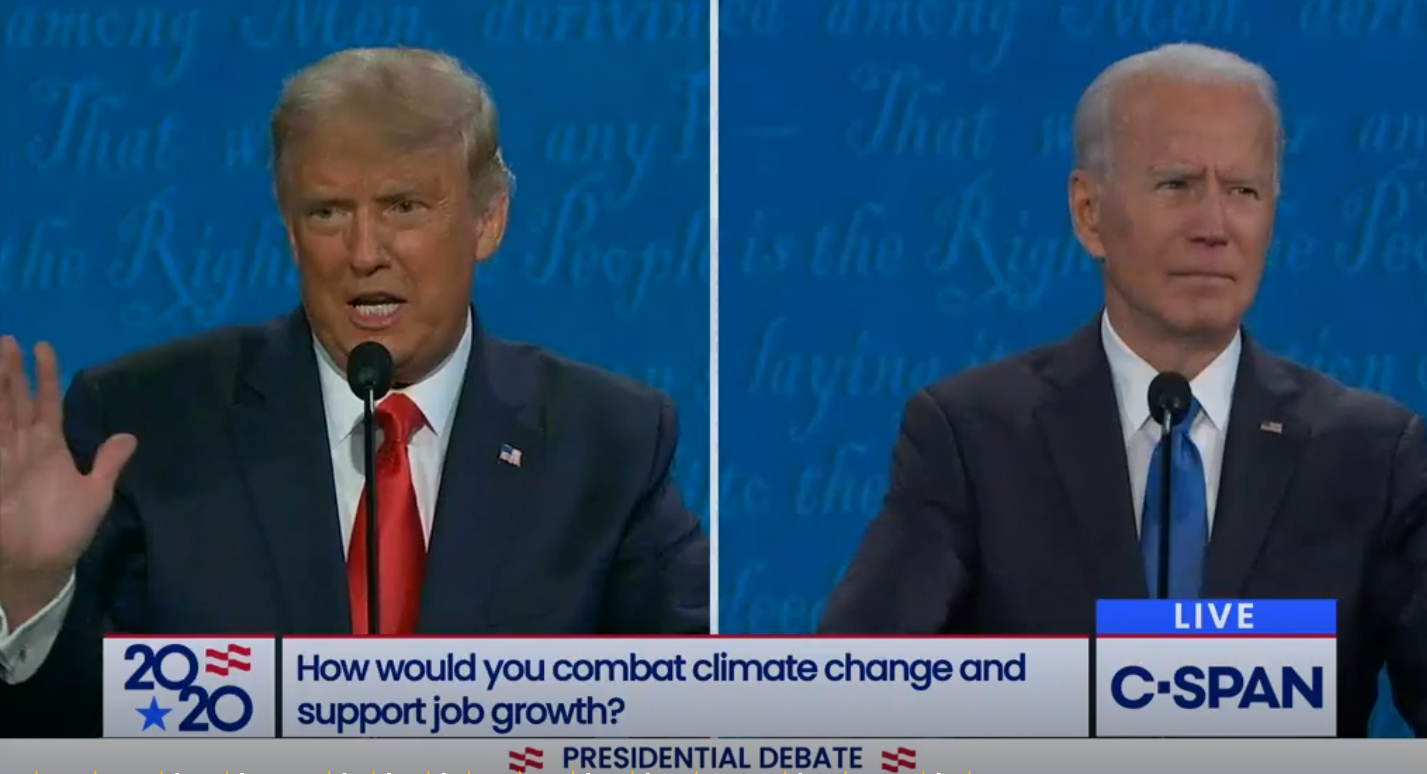“To all the people of Pennsylvania, hear this warning,” President Trump said at a campaign rally last week in Erie, Pennsylvania. “If Biden’s elected, he will wipe out your energy industry.”
“Only by voting for me,” Trump added, “can you save your fracking in Pennsylvania.”
If Trump had made those comments in 2014, “saving” fracking might have been a popular position, polls from the time suggest. That year, 64 percent of Pennsylvanians said they had a favorable view of the natural gas drilling industry, and just 15 percent voiced strong opposition, a poll by Franklin & Marshall College found.
But today, things — a great many things — look very different than they did in years past.
Of a dozen “battleground” states, Pennsylvania’s economy has been the one hardest hit by the COVID-19 pandemic, according to The Wall Street Journal, which found that 51 of the commonwealth’s 67 counties saw unemployment rates rise significantly faster than the national average during President Trump’s most recent year in office, and that in August, more than half of the commonwealth’s counties had double-digit unemployment rates.
Not only has the pandemic upended lives around the world — and not only has the U.S. spectacularly failed to control the spread of COVID-19 — but, perhaps more quietly, voters in Pennsylvania have turned against fracking after over a decade of experience with shale drilling in the region.
In August, a CBS News poll of registered voters in Pennsylvania found that 52 percent of those polled opposed fracking in the commonwealth, with 48 percent saying they supported the process.
From the CBS poll of Pennsylvania, support for fracking is slightly underwater, 48% pro and 52% against. This is not usually how the issue is covered – as opposition being a political suicide mission. pic.twitter.com/LVQRFAAIqt
— Dave Weigel, Re-Animator (@daveweigel) August 9, 2020
A second poll, conducted by YouGov in August based on a survey of over 40,000 U.S. adults, found that Americans overall oppose fracking, with just 35 percent expressing support for the industry while 44 percent opposed it, and Pennsylvania adults were evenly split on the industry. That poll found that fracking’s support has fallen dramatically even in Texas, where 42 percent of respondents said they supported fracking compared to 39 percent opposed.
Political Press Corps Flunks on Fracking
Those polls may be news to some Republicans — but fracking’s plunge in popularity also hasn’t seemed to sink in for others in Washington, D.C.
Across the U.S., this year has brought extraordinary and devastating events that climate science tells us are linked to climate change: a record-obliterating wildfire season still raging on the west coast“hyperactive” hurricane season on the Gulf coast; and oddities like this August’s derecho in Iowa that did $7.5 billion in damage.
Two thirds of Americans think the federal government needs to be doing more on climate change, with a quarter of respondents saying that climate change was affecting their local community “a great deal,” a poll by the Pew Research Center found this summer.
For all those pundits stuck in the 1990s and making claims today like, “Biden just lost PA” because he pledged to transition the US to 100% clean energy – here are some inconvenient facts from a poll of registered voters in PA we conducted in Sept:
— Anthony Leiserowitz (@ecotone2) October 23, 2020
But when the candidates discussed a transition away from fossil fuels during the final debate, the political press seemed to turn to badly outdated tropes.
“Some Biden allies acknowledged that it wasn’t a good moment,” the Washington Post reported following the debates, referring to Biden’s pledge to “transition” away from oil. “‘That was by far the only thing that could be categorized as a slip-up,’ said former Pennsylvania governor Ed Rendell.”
Of course, Rendell himself isn’t just a Pennsylvania Democrat and former governor. He’s also worked as a paid consultant for private equity investors in the gas industry — a fact that ProPublica reported in 2013, after Rendell failed to disclose his role at Element Partners in an op-ed favoring fracking that had listed only his role as Pennsylvania’s governor (a scandal that was repeated in 2016 when Rendell again failed to disclose his growing roster of gas industry ties in an another op-ed).
Rendell served as governor from 2003 to 2011, during the early days of the shale rush — and his record on fracking during that time has remained in the spotlight into 2020. This summer, a damning investigating grand jury report found, “in many instances by clear and convincing evidence,” that state officials had performed poorly in efforts to regulate the shale gas rush, faulting the administrations of governors Tom Corbett and Tom Wolf and Rendell.
28% voters oppose transitioning away from the oil industry.
28%
52% of independents support transitioning away, and even 41% of Republicans.
This poll was taken yesterday. pic.twitter.com/mYiZAOo373
— Jon Favreau (@jonfavs) October 24, 2020
CNN similarly framed its coverage of the debate’s discussion of the oil and gas industry as an attempt by Trump to distract from his failures on COVID-19 by moving to more favorable ground on oil — while making only passing reference to today’s climate crisis.
A sampling by the climate newsletter Heated found that out of 30 articles covering ways that the candidates discussed fracking during the debates, from outlets including Politico, the New York Times, LA Times, Marketwatch and the Associated Press, 25 “adopted the Trump campaign’s framing of the conflict” by talking about the costs of climate action while failing to talk about the costs of inaction on climate change.
“I don’t think the political reporters are knowledgeable enough about energy or climate to get this stuff, and the environmental/energy writers and editors are left out of the discussion or fact checking rounds,” said Kert Davies, director of the Climate Investigations Center. “So Trump propaganda is being covered as news.”
Running Fracking’s Numbers
It takes a lot to turn coal country against industry, particularly when in many rural parts of Pennsylvania, it’s been hard to find a job or make a living for many years.
The shale rush brought with it sorely needed revenues for local businesses and governments — but that cash flow came with a lot of fine print, in the form of associated costs.
And those costs add up. “In northeast Pennsylvania, Bradford County residents who live within two miles of wells pay $7.2 million per year” in health, infrastructure and environmental costs associated with fracking, the Pocono Record reported, citing a report conducted by the Delaware Riverkeeper Network, an environmental group, and adding that in Washington County, outside Pittsburgh, costs had been even higher, at $23.9 million annually for those living within two miles of active wells. “In the Poconos, the cost for residents living within two miles of wells is $2 million for Luzerne County, and $300,000 in Wayne.”
In fact, the shale industry’s costs in the Appalachian basin have been higher than its benefits, a separate peer-reviewed study, titled “Cumulative environmental and employment impacts of the shale gas boom” and published in the journal Nature Sustainability by Carnegie Mellon University, concluded in December 2019. That research, funded by the U.S. Environmental Protection Agency, found that the industry’s air pollution alone had already caused between 1,200 and 4,600 deaths in the region.
“It’s a rural job phenomenon with urban health impacts,” Nicholas Muller, associate professor of economics, engineering and public policy at Carnegie Mellon and one the authors of that study, told the Pittsburgh Post-Gazette in December. “That’s the trade-off.”
It’s not just that Pennsylvanians have had well over a decade to experience the impacts of fracking firsthand. It’s also that the industry’s financial prospects — never all that certain — have dimmed massively since the days when headlines about “mailbox money” and “shale-ionaires” tempted landowners into leasing their land for drilling.
In the Marcellus Shale in Pennsylvania, and across the U.S., the shale industry had been battered by its own financial projections, which have proved to be enormously overblown. “Chevron in December took a multibillion-dollar write-down on its Appalachian shale assets, dominated by gas reserves in Pennsylvania, and said it might sell them,” The New York Times reported in April. “The stocks of two once mighty Marcellus Shale pioneers, Range Resources and EQT, have plummeted, and their bonds are trading at steep discounts, a sign that investors believe they could default on their debts.”

An abandoned home along Carter Road in Dimock, Pennsylvania, where some of the earliest battles over the shale industry and water contamination broke out in the state. Credit: Laura Evangelisto © 2014
And for the first time, the fossil fuel industry faces real competition from renewable energy sources that aren’t just far cleaner than natural gas, oil, or coal, but that are also now the cheapest option. (“Tough break for fossil fuels,” Popular Mechanics wrote this month.)
Not a single shale company made the list of Pennsylvania’s top 50 largest employers for the first quarter of 2020, a list published by the state’s Department of Labor and Industry — nor did the shale industry rank on the list of the commonwealth’s 50 largest industries.
EQT remains the nation’s largest producer of natural gas, though the company has continued to rack up financial losses — but its total number of employees fell in February to 650, down from a peak over 2,000.
EQT Plaza, where EQT has its headquarters, remains one of the largest office buildings in Pittsburgh.
But, as many have found with shale, what you see from far away doesn’t always quite match what you find when you take a closer look. Parts of that building are currently up for rent.
As of February, EQT occupied just 15 percent of its own office tower.
Main image: President Trump and former Vice President Biden face off in the final presidental debate on October 22, 2020. Credit: Screenshot from C-SPAN
Subscribe to our newsletter
Stay up to date with DeSmog news and alerts






